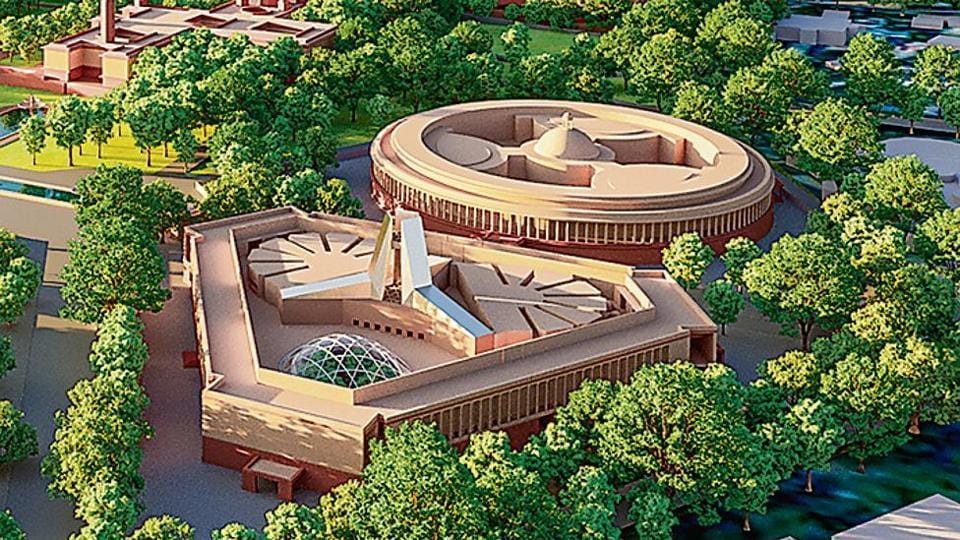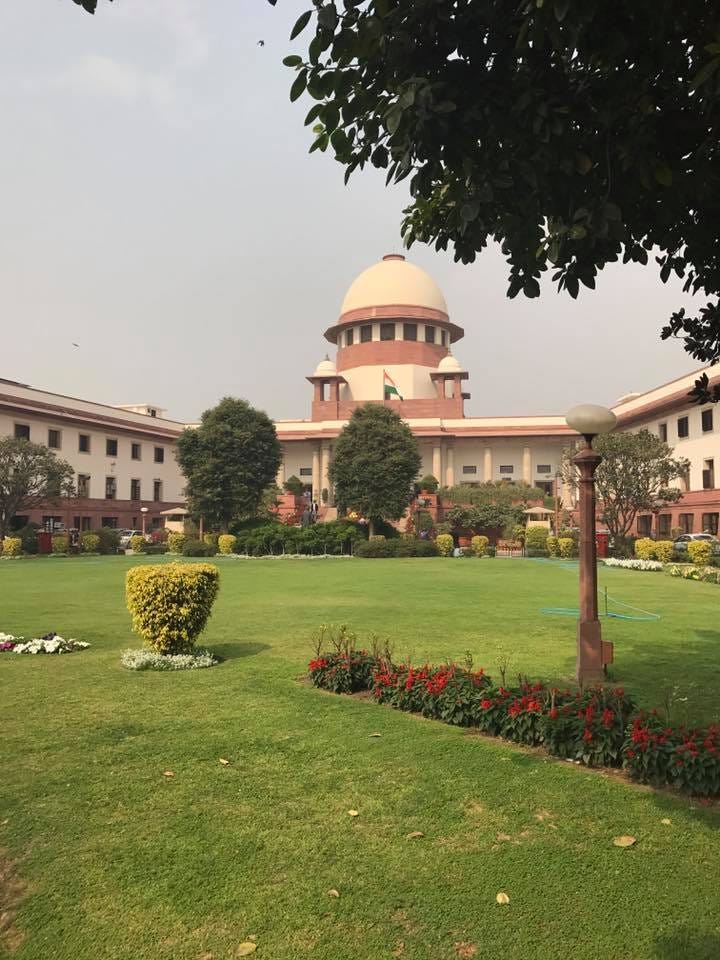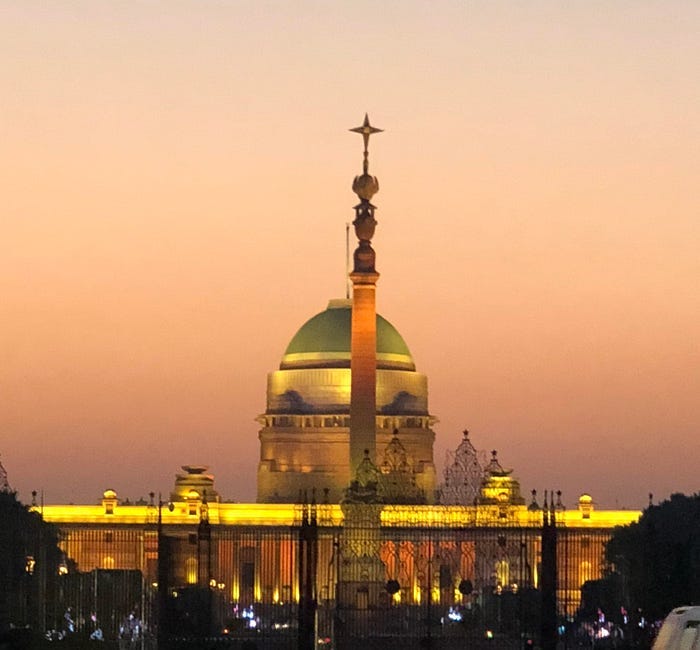The Waqf Act, 1995 Deserves a Decent Burial—in the Current Session of the Parliament
The 1995 law permits the Waqf Board to declare a property to be a Waqf Property, through a summary, virtually ex-parte procedure, and every claimant must go to Waqf Tribunal to prove otherwise.
1. Introduction: The Genesis of the Debate via Private Member's Bill
The introduction of the Private Member Bill in the Rajya Sabha on December 8, aimed at repealing the Waqf Act, 1995, has sparked a vital debate concerning the enactment's relevance and its constitutional alignment within India's secular framework. This Bill, tabled by BJP MP Harnath Singh Yadav, addresses persistent concerns regarding the Act's impartiality and its impact on secularism in India. The motion to introduce the Bill was preliminarily approved in the Rajya Sabha, with a vote of 53 in favor and 32 against.
As of now, neither the draft of the Bill nor a confirmed date for its formal introduction and subsequent discussion has been announced.
2. Anticipating the Bill's Impact: Fairness, Equity, and Legal Implications
Although the complete text of the Waqf Repeal Bill, 2022, was not available till the time of publication, there is an expectation that it will establish a just, fair, and equitable framework. A crucial element to watch in the Bill is how it proposes to handle the dissolution of the Waqf Boards. This naturally leads to significant questions regarding the subsequent devolution of their assets and liabilities, including some very valuable urban properties that might have been encroached upon for decades. The Bill's guidelines for managing this transition are essential to guarantee a fair and orderly process.
Another key aspect would be the treatment of ongoing legal cases. The Bill needs to clearly define the fate of current proceedings in the Waqf Tribunal, as well as those in the High Courts and the Supreme Court, where Waqf Board is one of the parties. How these cases are managed or resolved will significantly reflect the Bill's dedication to maintaining fairness and upholding legal principles.
3. A Debate Already Sparked
The Bill's introduction has already sparked intense debate, evidenced by the division of votes in the Rajya Sabha. While it garnered support from 53 members, primarily from the treasury benches, it faced opposition from 32 members, including representatives from the Congress, TMC, DMK, CPI, CPI (M), and RJD. This division underscores the Bill's potential impact on India's socio-legal landscape and the need for a balanced approach in its final form.
However, given the number of votes it garnered in its favour at the initial stage, is a clear indication that the ruling BJP has thrown its full eight behind it.
4. Historical Context: Insights from "SDM—A Multi-Functional Authority"
Our 1989 publication, "SDM—A Multi-Functional Authority," highlighted significant issues with the Central Waqf Act of 1954. We noted instances where the rights of non-Muslim individuals were overshadowed, if not jeopardised, by the Act's provisions, a concern later echoed by the Supreme Court in [AIR 1979 SC (288]. This ruling emphasized that Waqf notifications should not undermine the rights of non-Muslims strangers, underscoring the need for a more balanced and equitable approach1.
5. The Evolution of Waqf Laws: A Critique from Recent Discussions
Our recent article on Substack further delves into the complexities of the Central Waqf Acts, both the original 1954 version and the revised 1995 edition. The latter, introduced under the PV Narsimha Rao government, was meant to provide better protection for waqf properties but has been criticized for disproportionately favoring the Muslim community/ Waqf Boards in property disputes, thus raising questions about its alignment with secular principles as well its constitutionality.
Inter alia we had noted:
The Central Waqf Act, 1995 is a legislation that regulates the administration and management of waqf properties in India. Waqf is an Islamic religious endowment that is dedicated to a charitable cause, and the property is held in perpetuity for the benefit of the cause. The old Central Waqf Act, which was enacted in 1954, was criticized for being outdated and ineffective in protecting waqf properties from encroachment and mismanagement. The Supreme Court also ruled that “once a waqf property, always a waqf property” and this caused significant impediments not only in land acquisition for public purposes but also for the “non-Muslim stranger” to assert their right, title or interest in any property that had been declared to be a waqf property under a summary procedure under the Central Waqf Act,1995.
6. Analyzing the Contentious Sections of the Waqf Act, 1995
Sections 4, 5, and 40 of the Waqf Act, 1995, have been sources of contention due to the procedures they establish for declaring properties as waqf. These sections enable a swift process to designate properties as waqf, placing an unreasonable onus on non-Muslim individuals to assert their rights in a notably short period. This method stands in contrast to the essential legal tenet that no individual should act as a judge in their own case. In this scenario, the Waqf Board is empowered to declare a property as waqf following such enquiry as it deems fit. Consequently, the burden falls on the claimant to prove before the Waqf Tribunal that the property in question is not a waqf property. This, on the face of it, is very unjust qua any party opposing the Waqf Board, including the mutawali or the mutawali committee as well as a “non-Muslim stranger”.
7. Reassessing the Waqf Act in the Context of Secularism
The Waqf Act's presence in India, a secular republic, alongside its absence in several Muslim-majority nations, presents a unique dichotomy. This Act, responsible for the extensive growth of waqf properties, has raised concerns about its alignment with the principles of secularism as outlined in the Indian Constitution. This situation prompts a reevaluation of the necessity and fairness of religious-specific legislation in a country that champions secular values.
The query emerges: what necessitates the existence of legislation like the Waqf Act, which caters solely to one community in a country as religiously diverse as India? This issue is accentuated when considering the 1991 Places of Worship Act, aimed at preserving religious sites as they existed at India's independence. In contrast, the Waqf Act of 1995 grants the Waqf Board the authority to claim rights over properties, yet does not provide a sufficiently effective avenue for those aggrieved to challenge these claims. Moreover, a stringent aspect of the Act is that any third-party rights concerning a Waqf property are permanently nullified a year following its official declaration as such, a stipulation that is notably harsh and unfair.
This scenario appears unusual, especially when compared to Muslim-majority countries like Turkey, Libya, Egypt, Sudan, Lebanon, Syria, Jordan, and Iraq, where no equivalent of the Waqf Board or Waqf Law exists. In light of these observations, it seems prudent for India to reconsider the place of the Waqf Act within its legal framework, ensuring that all communities are treated equitably and in harmony with the country's constitutional commitment to secularism. The call for the repeal of the Waqf Act is thus rooted in a desire to uphold constitutional values and ensure equal treatment for all citizens, irrespective of their religious affiliations.
8. Ensuring Respectful Transition Post-Repeal
The envisioned repeal of the Waqf Act, 1995, aims to maintain the rights of Muslims to dedicate their properties for charitable purposes, either during their lifetime or posthumously. This can be effectively facilitated under the existing frameworks of the Indian Trusts Act, the Societies Registration Act, and the Muslim law of wills. Additionally, the repeal will address the management and upkeep of historical and religious monuments, including graves and dargahs, which are presently under the Waqf Board's purview. It is important to note that, in accordance with Article 300A of the Constitution, the Central Government will remain unable to compulsorily acquire these properties without due compensation. However, determining the distribution of the compensation award presents a significant challenge. In essence, the proposed Bill, whether in its introduced form or as amended by Parliament, is expected to handle what are currently waqf properties with the utmost respect, reverence, and dignity.
9. The Path to Repeal: A Hope for Secular Equilibrium
The introduction of the Waqf Repeal Bill, 2022, in the Rajya Sabha is a step towards addressing these long-standing concerns. With substantial support from the ruling alliance, there is a tangible possibility of the Act being repealed, aligning India more closely with its constitutional commitment to secularism. The repeal of the Waqf Act, 1995, would not only correct a historical imbalance but also reaffirm the nation's dedication to a secular and inclusive society2.
In conclusion, the Waqf Act, 1995, stands as an anachronism in modern India, a relic of a bygone era that no longer serves the collective interests of a diverse and secular nation. Its repeal, a matter of constitutional integrity and secular commitment, is both necessary and overdue. The Winter Session of Parliament presents an ideal opportunity to rectify this historical oversight and reaffirm India's commitment to fairness and secularism.
Let it be clear that the repeal is not anti-Muslim. Rather, it targets an organized land mafia that has exploited and profited immensely by encroaching upon and, in some cases, outright consuming these revered properties and places.
Wakf Properties (Exact quote from our 1989 publication)
“There are frequent cases where although “Gram Panchayat” is reflected as the owner in the ownership column of the Jamabandi, the entries in the cultivation column are of the type “Maqbuaza Ahle Islam, Ghair Mumkin Qabaristan”.
In such cases, applications are often moved on behalf of the Punjab Wakf Board, along with a copy of the notification issued under section 5 of the Central Wakf Act, 1954, praying that the mutation be sanctioned in favour of the Wakf Board.
A plain reading of section 5 of the aforesaid Act creates an impression that such a notification, unless challenged within one year, becomes final. Apparently thus the mutation should be sanctioned if the notification has not been challenged and struck down.
However, the Supreme Court has held [AIR 1979 SC (288] that such a notification is not binding qua a Non-Muslim stranger and the right, title or interest of such a person cannot be jeopardized by such a notification.
It is, therefore, submitted that all such mutations should be rejected and the Wakf Board should be left to get its rights declared by a competent Court.”
India — towards a “Hindu Rashtra” or a truly Secular Republic?
Preamble didn’t initially contain the “Secular” The Constitution of India that was adopted by the Constituent Assembly on 26th November, 1949 and came into force on 26th January, 1950. The word “secular” did not find any mention in the initial version of t…









This law is very strange. Needs to be repealed